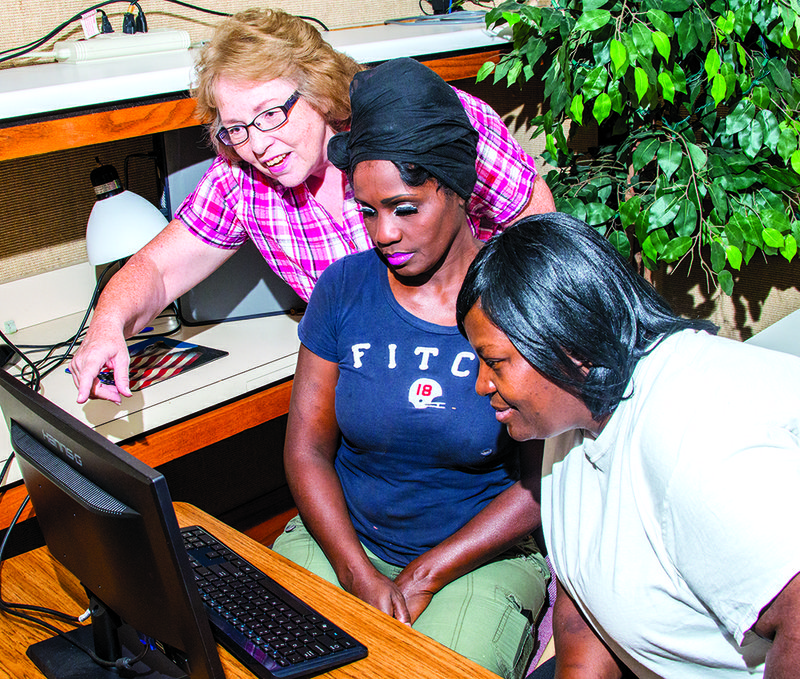Tracing one’s family history can be an important and exciting project, but many African-Americans related to former slaves hit a brick wall once they get to the mid-1800s. Many times, the records pertaining to their ancestors exist but are not readily accessible or easy to navigate.
On June 19, FamilySearch, the Smithsonian National Museum of African American History and Culture, the Afro-American Historical and Genealogical Society and the California African American Museum announced a collaborative effort to make the Freedmen’s Bureau historical records accessible and searchable online.
Once the project is complete, finding an ancestor may involve just visiting a website and entering a name to access records. Local volunteers will be part of this effort at the Jacksonville Arkansas Family History Center.
The Freedmen’s Bureau was organized near the end of the Civil War to help newly freed slaves in 15 states and the District of Columbia. While managing schools and hospitals, rationing food and clothing, and recognizing marriages between 1865 and 1872, the bureau gathered handwritten information, including marriage and family information, along with military-service, banking, school, hospital and property records for up to 4 million African-Americans.
FamilySearch is a nonprofit organization sponsored by The Church of Jesus Christ of Latter-day Saints, and the Jacksonville Arkansas Family History Center is one of several statewide branches of the LDS Family History Library, which is based in Salt Lake City. Volunteers in Jacksonville are ready to start indexing records as part of this project.
“We are anxious to get started,” said Carla Williams, indexing director for the Searcy Stake of the LDS church. As soon as volunteers reach out for training, Williams will show them how to access the records and index them online.
“The training I do takes about an hour and a half to two hours, when the volunteers have access to a computer and can do it along with me,” she said. “After that, it’s designed for them to do this at home.”
Williams, who has been indexing genealogical records for a long time, said she was excited to hear about the Freedmen’s Bureau Project. Much of that excitement comes from her experience mapping out her own ancestry, and she looks forward to helping African-Americans who have hit that proverbial wall in their own search for ancestors.
Sherry Smith, assistant director of the Jacksonville Arkansas Family History Center, echoed Williams’ sentiments on aiding others in finding their ancestors.
“I know how it feels to find your family,” Smith said. “I have been there, sitting at a computer just crying with joy because it took me years to find someone, and then I found them. We want everyone to feel that way.”
Smith has helped many people find their ancestors, but she said African-Americans can be the hardest to help because the records are not accessible or searchable at this time. That’s why this project is so important, she said.
There are many indexing projects like the Freedmen’s Bureau Project, Williams said, and they often include a partnership between government entities and the LDS church.
“It’s incredible the records that are available but are just sitting in county courthouses,” she said. “The church supplies the equipment and volunteers, and the government provides the records and the office space. It’s a win-win situation. … It is time consuming and labor intensive, and that’s where the volunteer indexers come in.”
The goal of the Freedmen’s Bureau Project is to have the records fully indexed in time for the opening of the Smithsonian’s National Museum of African American History and Culture, which is set to occur in late 2016. Once the records are indexed, they will be available online and will be showcased at the museum.
“The Freedmen’s Bureau papers open the door to literally millions of untold stories,” Bill Pretzer, senior curator for history at the Smithsonian Institute’s National Museum of African American History and Culture, said in a press release. “They are a major contribution to the mission of the museum in bringing to life the experiences of the African-American community.”
For more information on the project, visit www.discoverfreedmen.org. Those who want to volunteer locally with the indexing can sign up on the website or call Williams at (501) 231-0447.
Staff writer Angela Spencer can be reached at (501) 244-4307 or aspencer@arkansasonline.com.
